Discovering the wonders of Ethiopia is an exhilarating journey into a land of diverse landscapes, rich history, and vibrant cultures. Ethiopia offers a tapestry of experiences for adventurers, history enthusiasts, and nature lovers alike.
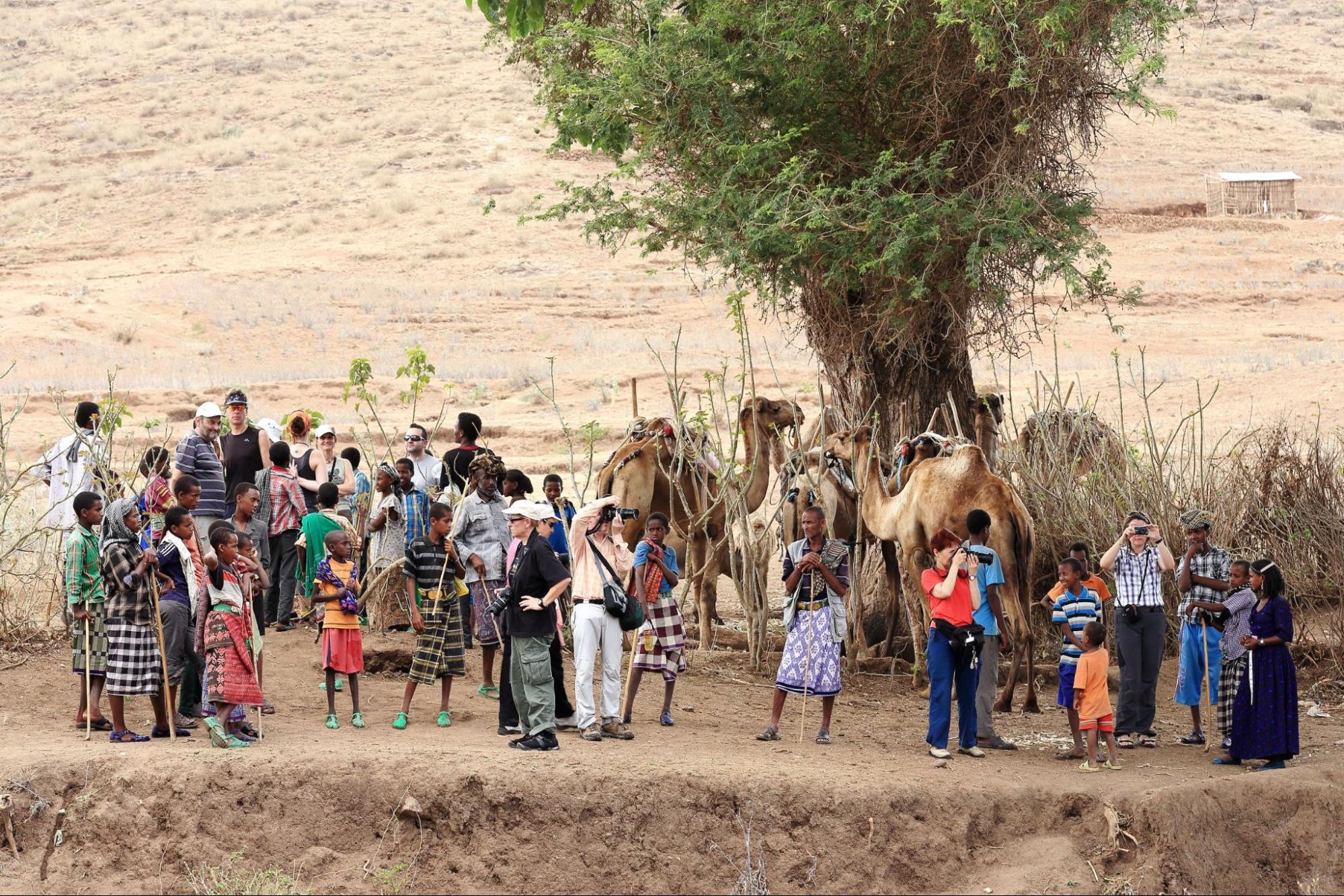
Let's embark on a virtual journey to explore the captivating wonders that make Ethiopia a truly unique destination. To travel to Ethiopia, you will need to obtain an Ethiopian visa. The specific type of visa required can vary depending on factors such as your nationality, the purpose of your visit, and the intended duration of your stay.
History and culture
History and culture Ethiopia is one of the oldest countries in the world with a rich and diverse culture. It is home to a variety of ethnic groups, each with its own unique traditions and languages.
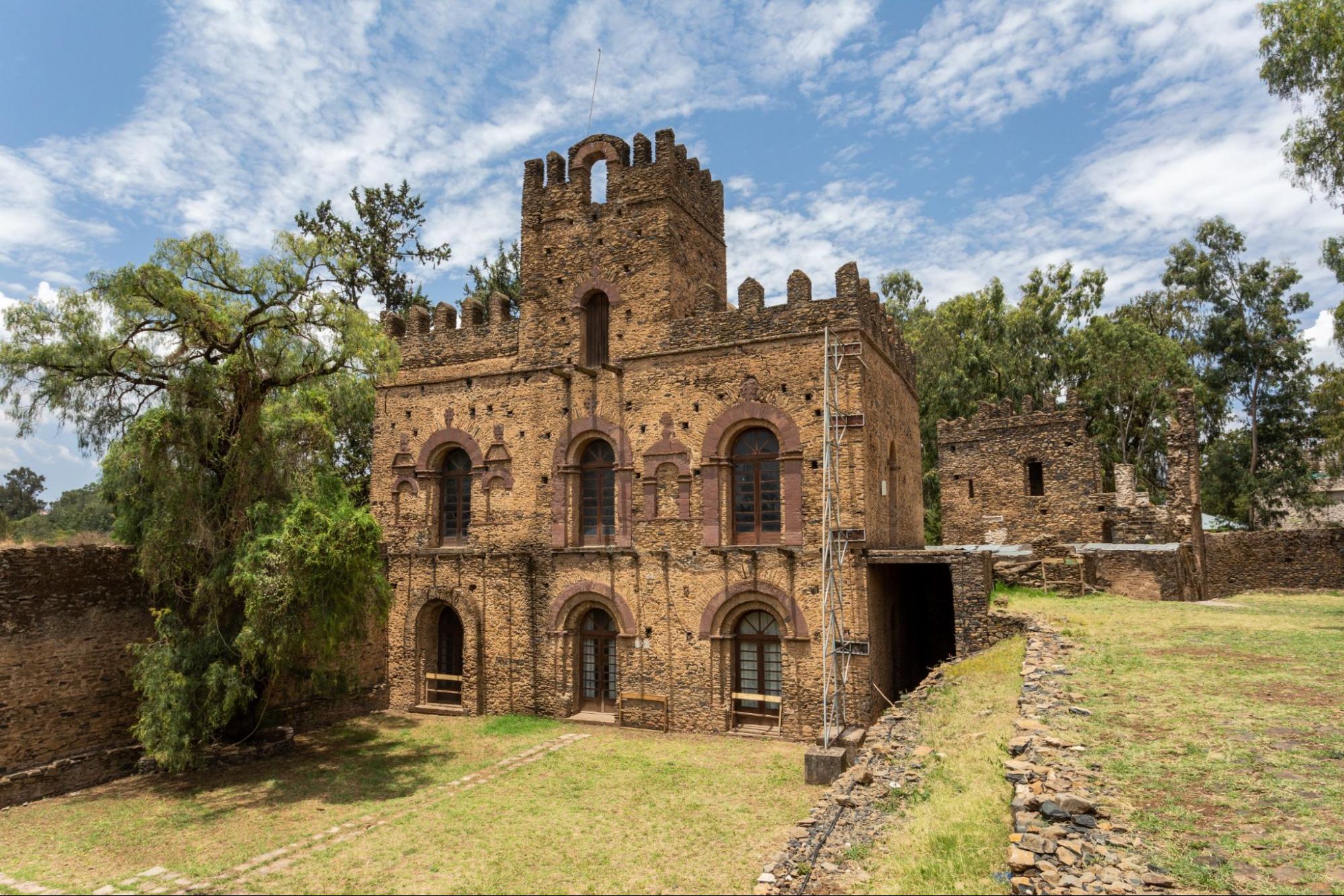
- Ancient Civilizations: Ethiopia is home to some of the world's oldest civilizations, including the Kingdom of Axum, which was a major trading empire in the ancient world. Axum is known for its obelisks and ancient Christian civilization.
- Christianity: Ethiopia is one of the earliest countries to adopt Christianity as the state religion. The Ethiopian Orthodox Tewahedo Church is the largest Christian denomination in the country and has played a central role in Ethiopian culture for centuries.
- Islamic Influence: Islam also has a long history in Ethiopia, dating back to the time of the Prophet Muhammad. The city of Harar in eastern Ethiopia is one of Islam's holy cities, and the country has a significant Muslim population.
- Imperial History: Ethiopia was ruled by a series of emperors, beginning with Menelik I in the 10th century and continuing until the overthrow of Emperor Haile Selassie in 1974. The monarchy was a unifying symbol in Ethiopian history.
- Colonial Era: Ethiopia is one of the few African nations that was never formally colonised by European powers. It successfully resisted Italian attempts at colonisation during the First Italo-Ethiopian War in 1896.
- Derg Regime: After Emperor Haile Selassie was deposed, Ethiopia went through a period of communist rule under the Derg regime, led by Mengistu Haile Mariam, which lasted from 1974 to 1991.
- Ethiopian People's Revolutionary Democratic Front (EPRDF): In 1991, the EPRDF, a coalition of rebel groups, overthrew the Derg regime and established a federal system of government. This marked the beginning of a new era in Ethiopian history.
- Recent Developments: Ethiopia has faced various challenges in recent years, including political unrest, ethnic tensions, and conflicts in regions like Tigray. The situation in the country was evolving rapidly.
Nature and wildlife
Ethiopia is a home to a variety of stunning natural landscapes. The Simien Mountains are a UNESCO World Heritage Site and offer some of the most spectacular scenery in Africa, with towering peaks, dramatic gorges, and alpine meadows.
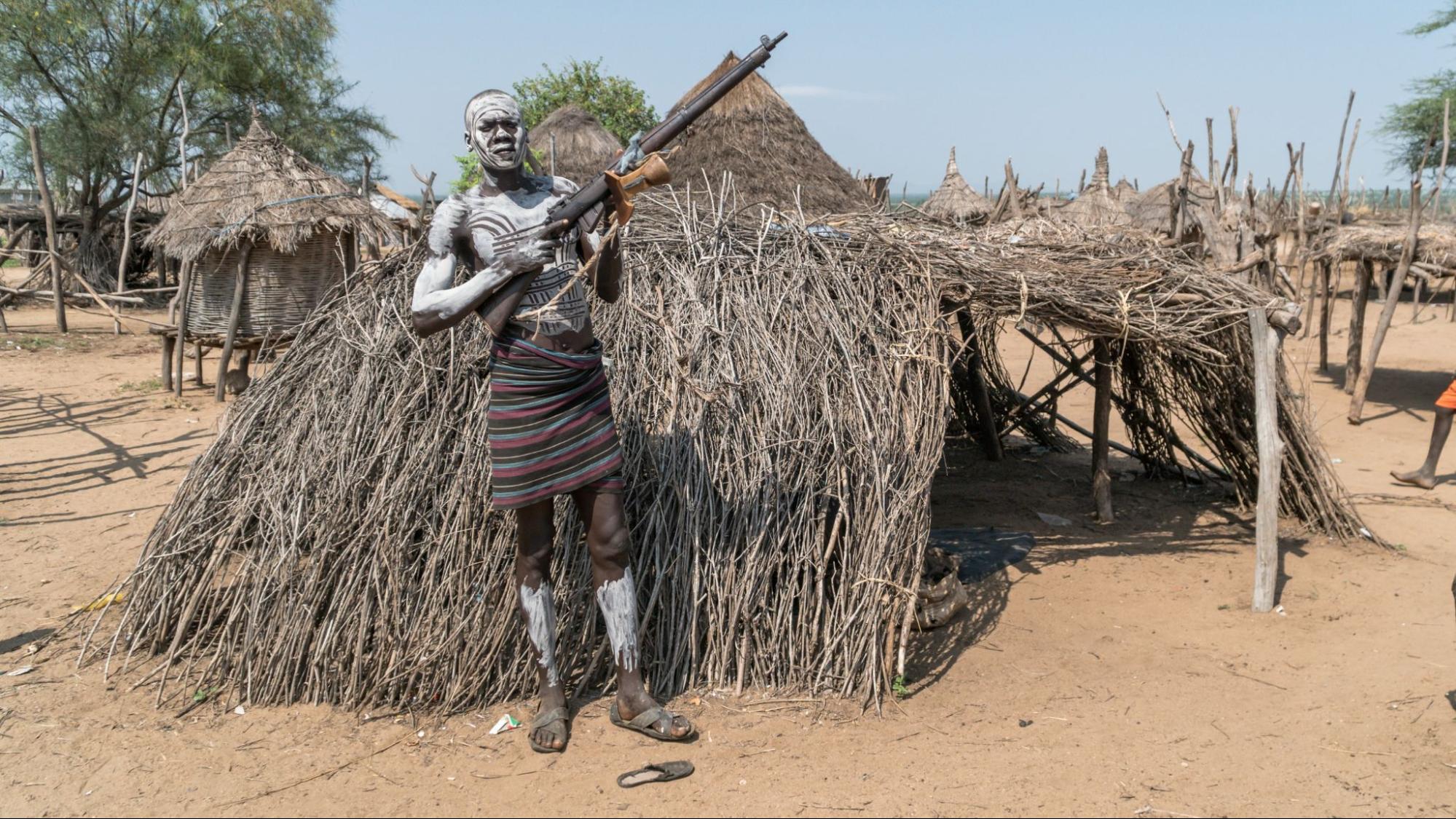
Other notable natural attractions in Ethiopia include:
- Awash National Park, home to a variety of wildlife, including black rhinos, crocodiles, and hippos
- Bale Mountains National Park, known for its alpine meadows and abundant birdlife
- Nechisar National Park, home to lions, elephants, and giraffes
Here are some additional details about Ethiopia's nature and wildlife:
- The Ethiopian Highlands are home to a number of endemic mammals, including the Ethiopian wolf, the Walia ibex, the mountain nyala, and the Simien fox.
- The Omo Valley is home to a number of large mammals, including elephants, lions, leopards, and zebras. It is also home to a number of endemic birds, such as the Omo River goose and the Banded Barbet.
- The Danakil Depression is home to a number of unique and interesting wildlife species, such as the Beisa oryx, the Soemmerring's gazelle, and the gerenuk.
- Ethiopia is home to a number of important bird migration routes. The country is also a popular destination for birdwatchers, as it is home to a number of endemic bird species.
Ethiopian People and communities
Ethiopia is a diverse country with over 80 different ethnic groups. The largest ethnic groups are the Oromo, Amhara, Somali, and Tigrayans. These four groups make up over three-quarters of the population.
Each ethnic group has its own unique language, culture, and traditions. For example, the Oromo are known for their coffee culture and their traditional music, while the Amhara are known for their Orthodox Christianity and their rich literary tradition.
Here are some of the major ethnic groups in Ethiopia:
- Oromo: The Oromo are the largest ethnic group in Ethiopia, making up about 35% of the population. They are primarily found in the Oromia region in southern and central Ethiopia. The Oromo are a Cushitic people who speak the Oromo language. They are known for their coffee culture and their traditional music.
- Amhara: The Amhara are the second largest ethnic group in Ethiopia, making up about 27% of the population. They are primarily found in the Amhara region in northern Ethiopia. The Amhara are a Semitic people who speak the Amharic language. They are known for their Orthodox Christianity and their rich literary tradition.
- Somali: The Somali are the third largest ethnic group in Ethiopia, making up about 6% of the population. They are primarily found in the Somali region in eastern Ethiopia. The Somali are a Cushitic people who speak the Somali language. They are known for their nomadic lifestyle and their pastoral culture.
- Tigrayans: The Tigrayans are the fourth largest ethnic group in Ethiopia, making up about 6% of the population. They are primarily found in the Tigray region in northern Ethiopia. The Tigrayans are a Semitic people who speak the Tigrinya language. They are known for their Orthodox Christianity and their strong sense of independence.
Adventurous things to do in Ethiopia
Ethiopia offers a wide range of adventurous activities for travellers seeking unique experiences. Here are some adventurous things to do in Ethiopia, each explained in paragraph form:
- Trekking in the Simien Mountains
The Simien Mountains National Park, a UNESCO World Heritage Site, is a trekker's paradise. Trekking through this rugged terrain takes you to breathtaking viewpoints, deep valleys, and encounters with unique wildlife, including the endangered Ethiopian wolf and the Walia ibex. The trekking routes vary in difficulty, making it suitable for both novice and experienced trekkers.
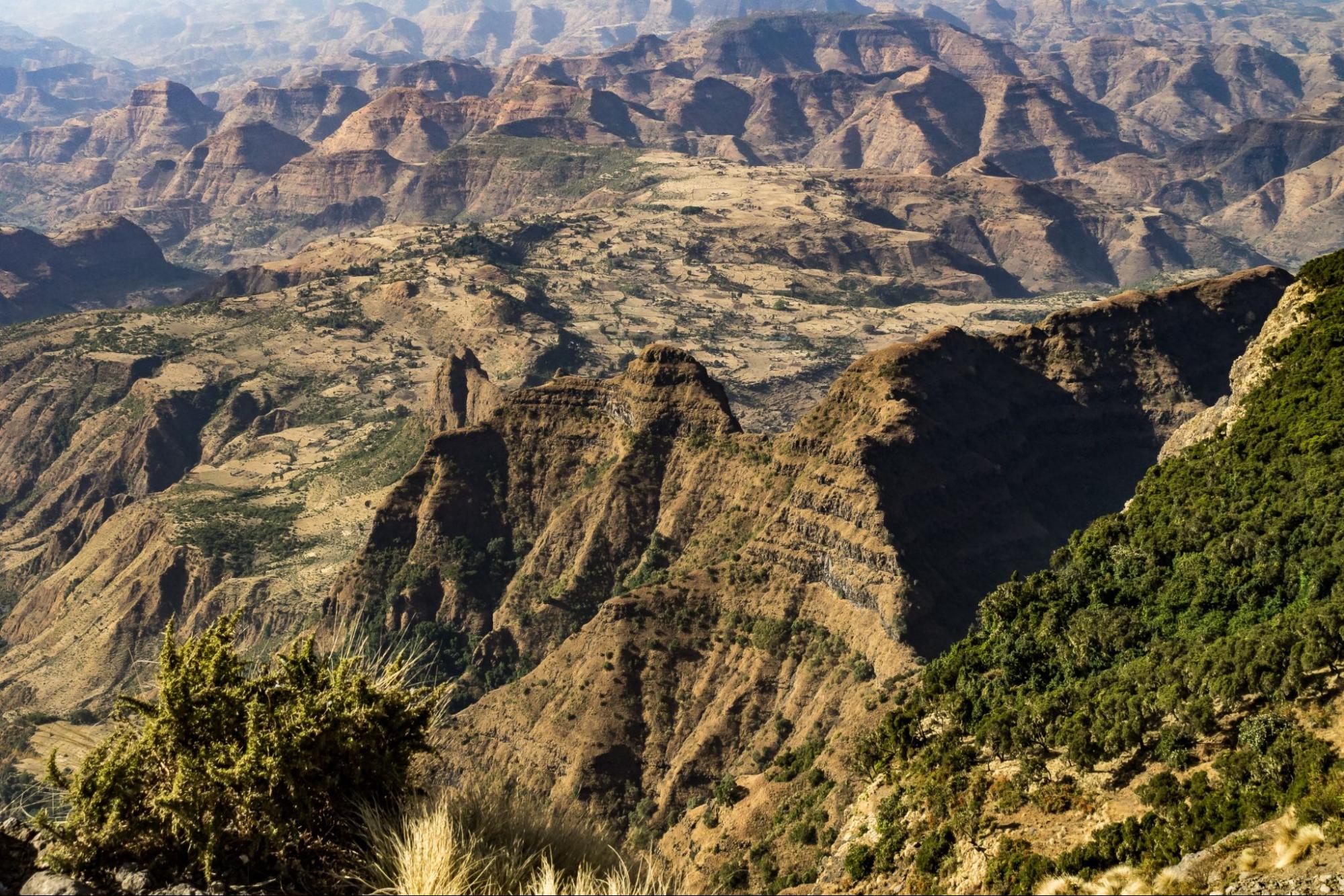
- Explore the Danakil Depression
The Danakil Depression in the Afar region is one of the hottest and most inhospitable places on Earth, but it's also one of the most fascinating. Exploring this lunar-like landscape, with its active volcanoes, sulphur springs, and salt flats, is an otherworldly adventure. Visitors can witness the geological wonders of the Dallol sulphur springs and the salt mining operations in this extreme environment.
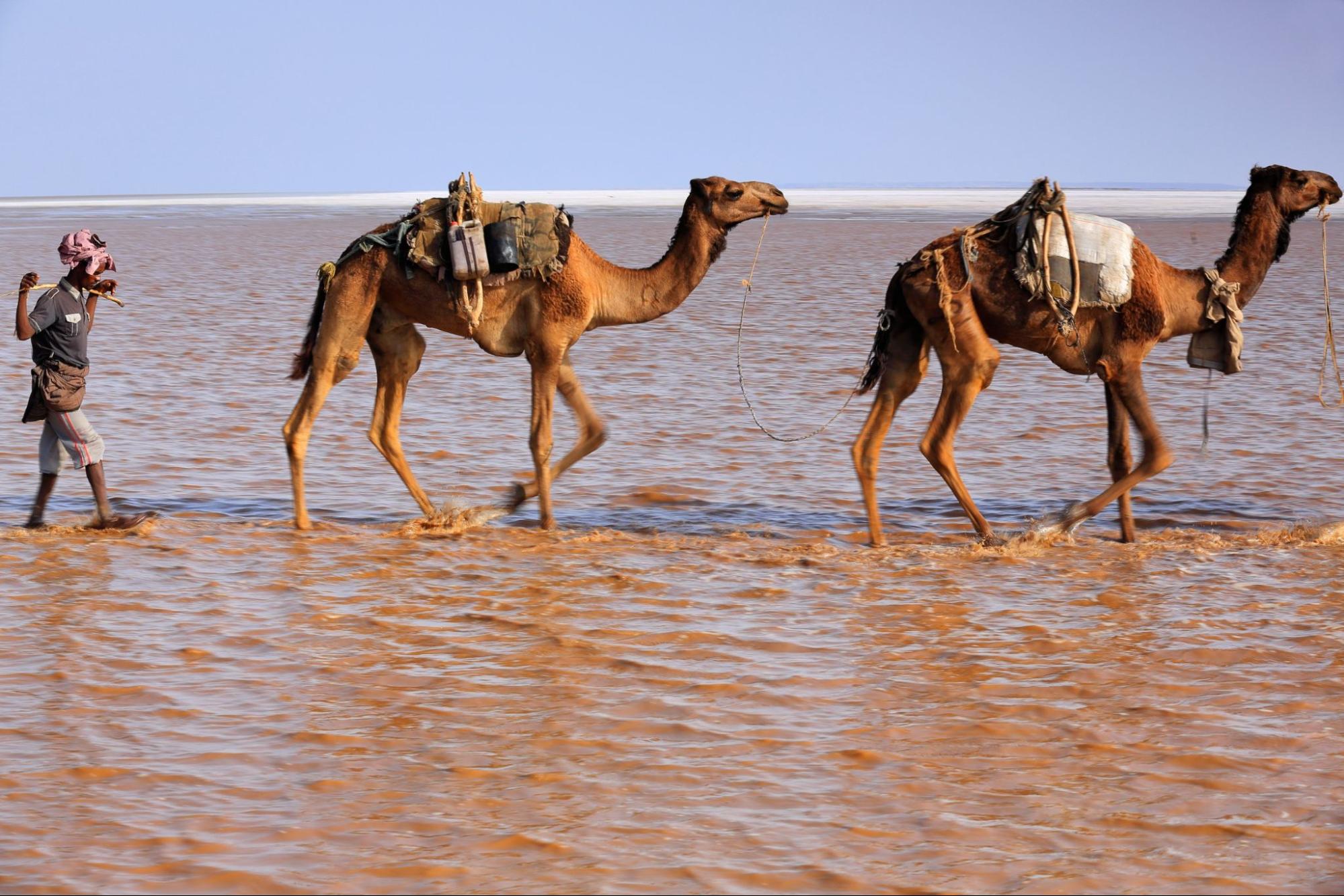
- Rock-Hewn Churches of Lalibela
Lalibela is a historic town in Ethiopia famous for its 11 rock-hewn churches carved entirely out of solid rock. Exploring these ancient churches, some of which are interconnected by tunnels, is an adventurous journey through history and spirituality. Visitors can also participate in the vibrant religious festivals that take place here.
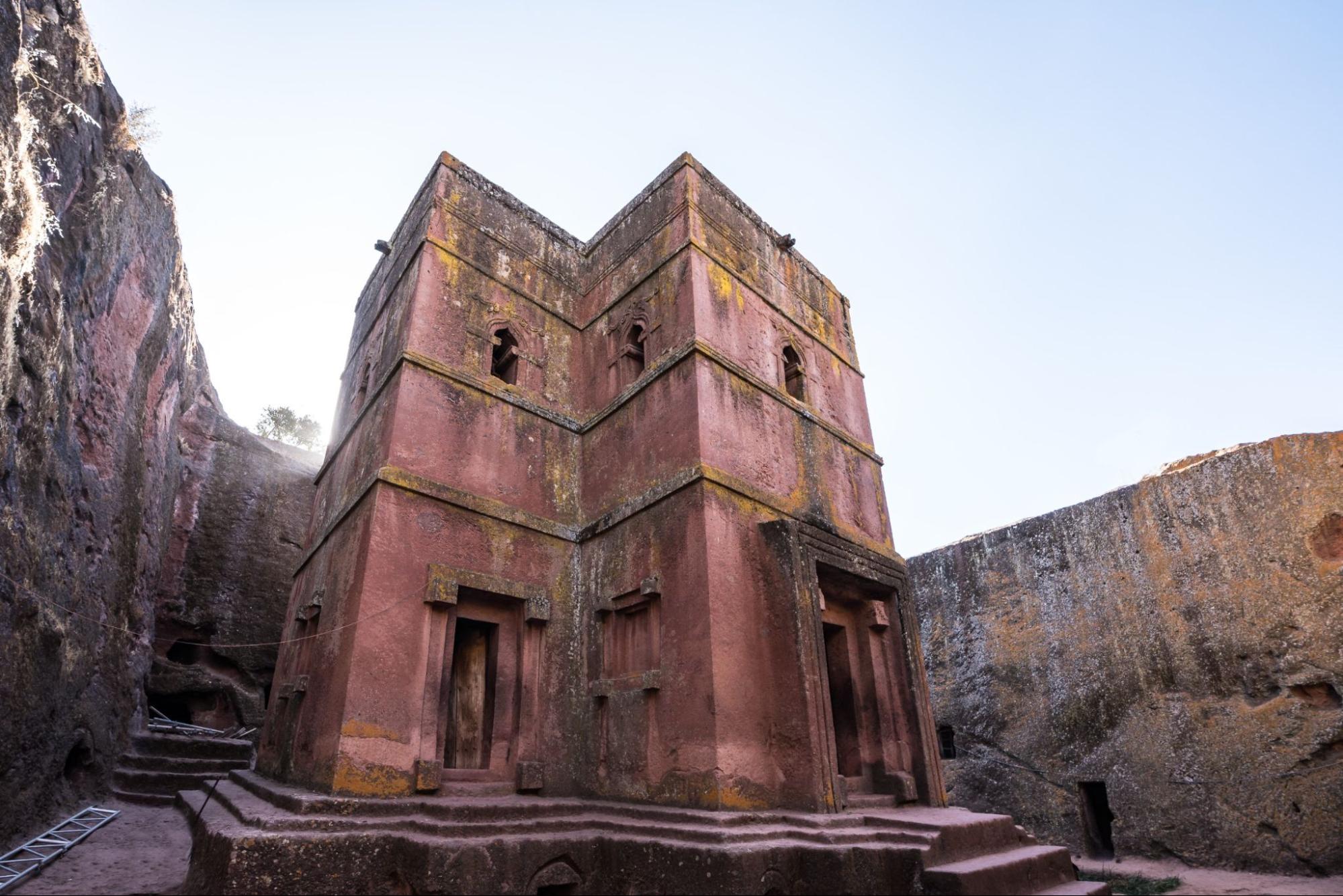
- Trek in the Bale Mountains
The Bale Mountains in southeastern Ethiopia offer excellent trekking opportunities, and the Bale Mountains National Park is home to diverse ecosystems, including lush forests and the high-altitude Sanetti Plateau. Trekkers can encounter endemic wildlife such as Ethiopian wolves and explore pristine landscapes.
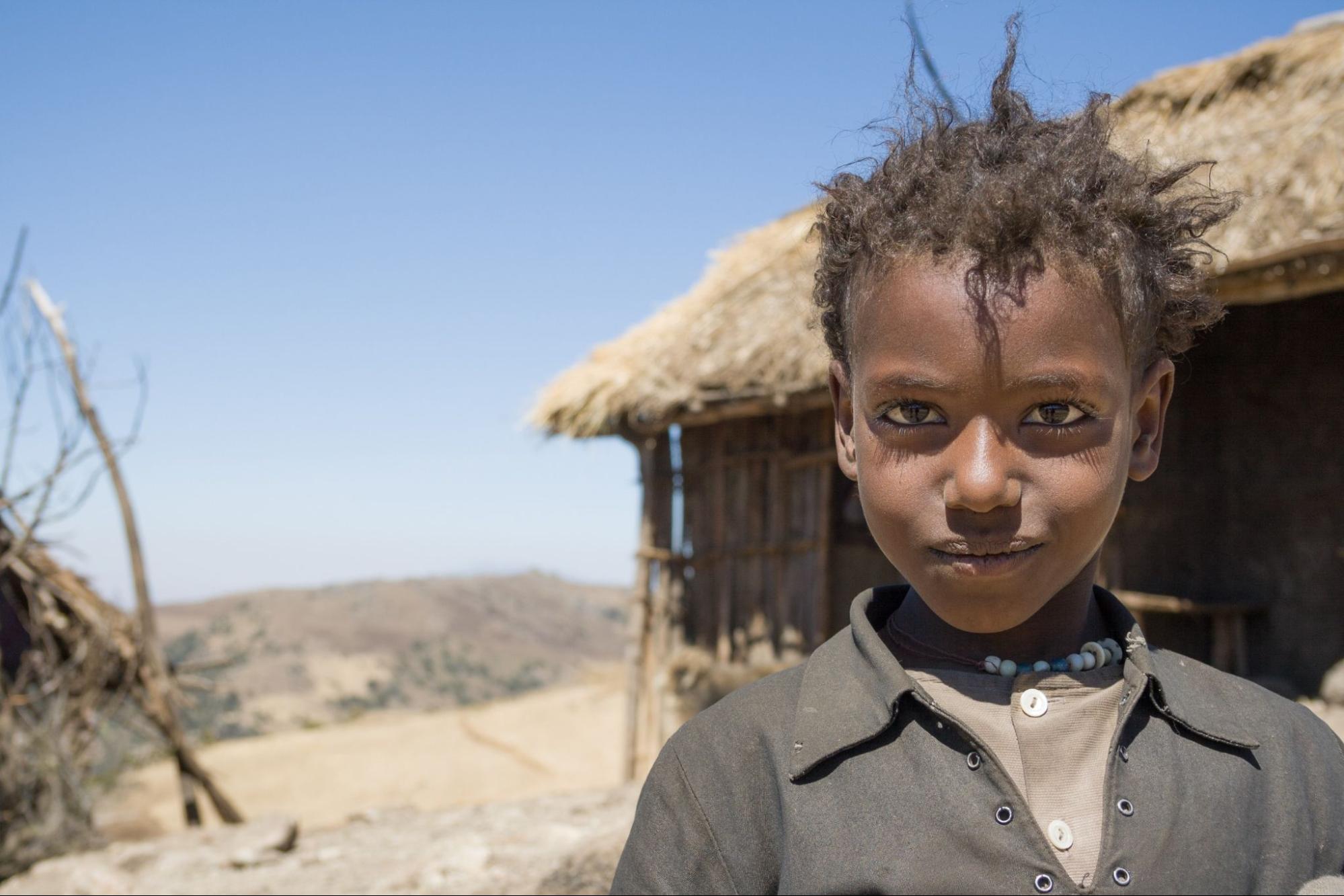
- Simien Mountains to Lalibela Trek
For the ultimate adventure, consider embarking on the multi-day trek from the Simien Mountains to Lalibela. This challenging journey takes you through remote villages, stunning landscapes, and offers a glimpse into the daily lives of rural Ethiopians. It's a physically demanding adventure that is rewarded with breathtaking scenery and cultural insights.
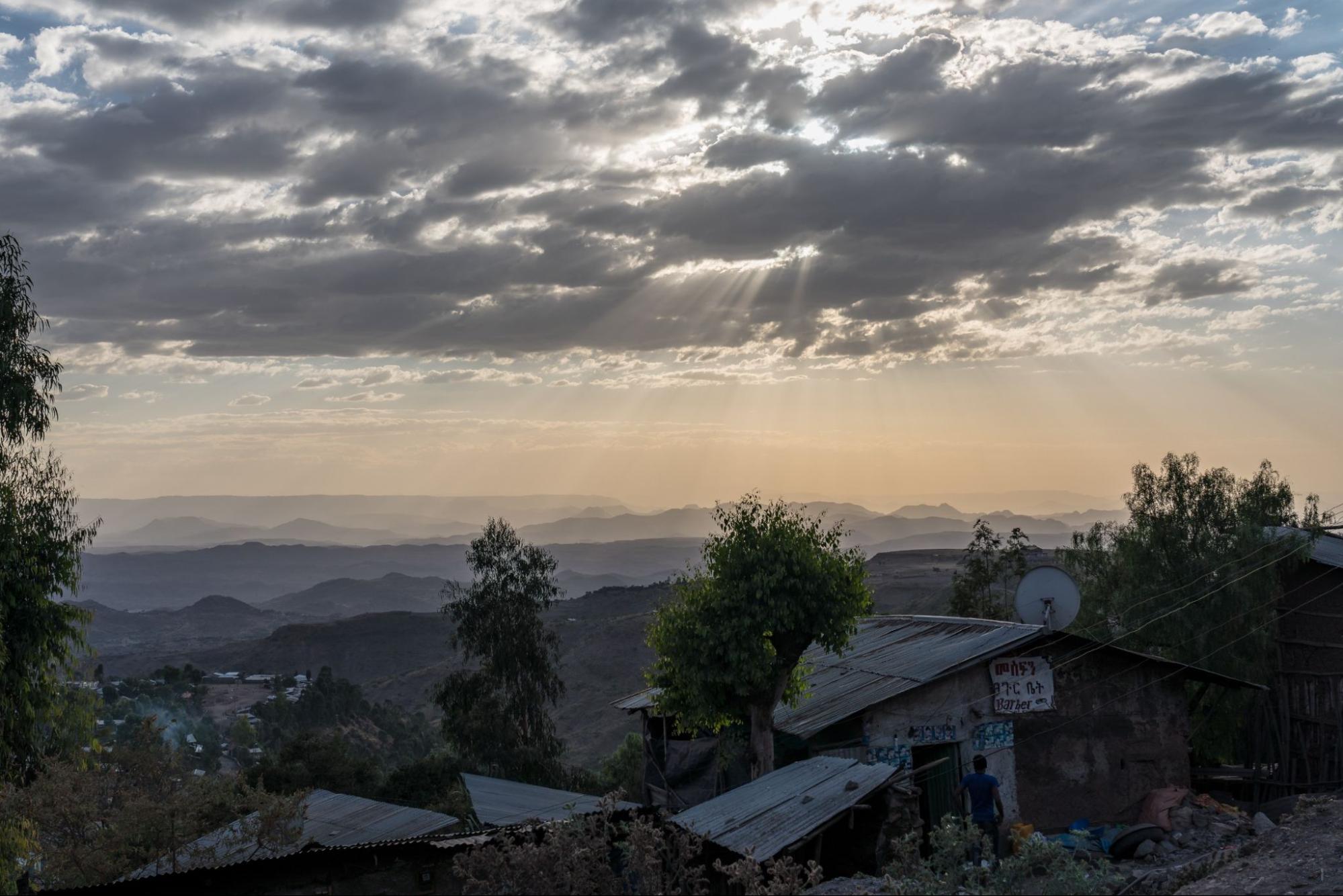
- Visit the Omo Valley Tribes
The Omo Valley in southwestern Ethiopia is home to numerous indigenous tribes, each with its own distinct customs and traditions. Adventurous travellers can immerse themselves in cultural encounters, visiting tribes like the Hamar, Mursi, and Karo. Witness traditional ceremonies, body adornments, and learn about their unique way of life.
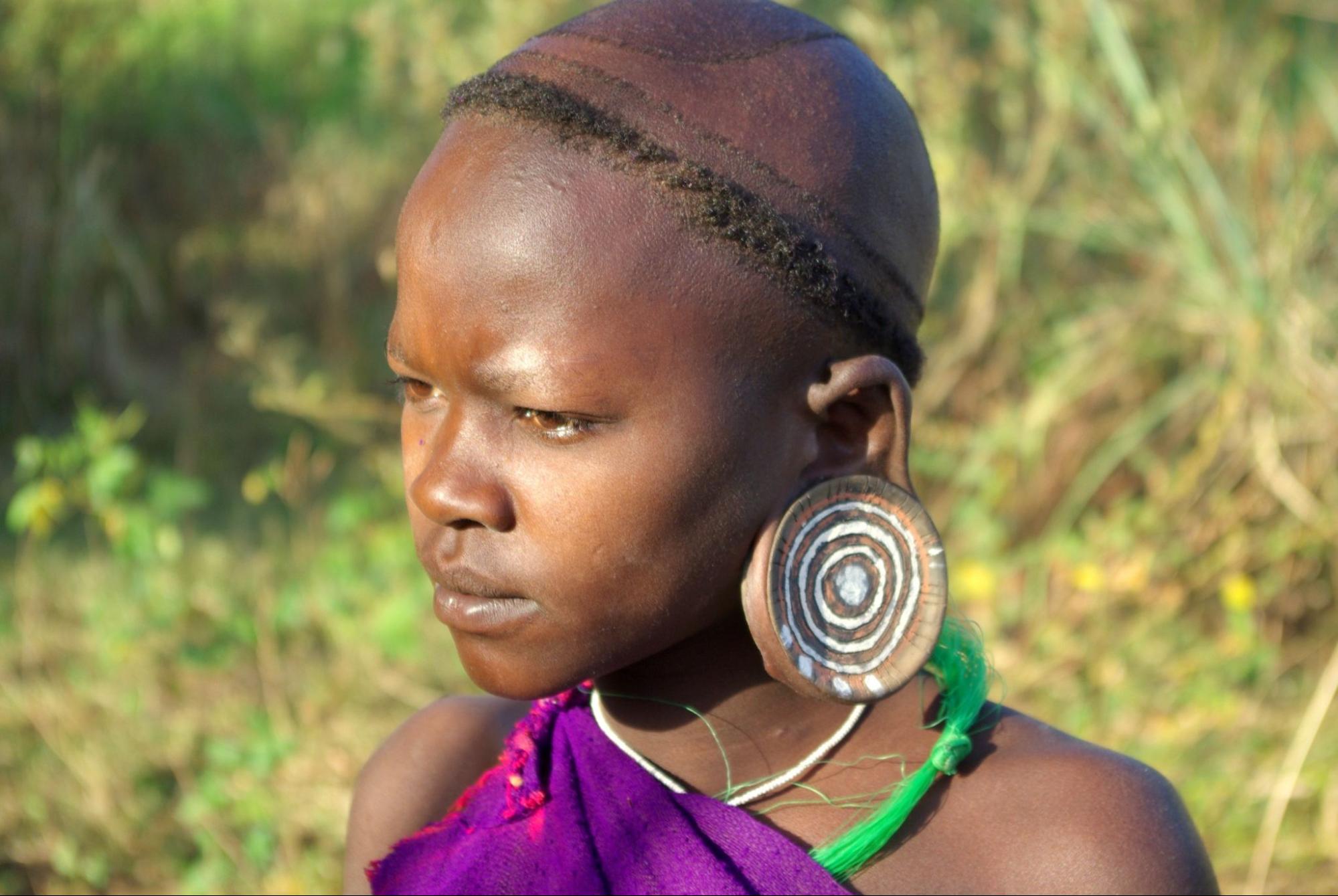
- Birdwatching in Rift Valley Lakes
Ethiopia's Rift Valley region is a haven for birdwatchers. Lakes like Lake Awassa, Lake Abijatta, and Lake Ziway are teeming with birdlife, including pelicans, flamingos, and various species of waterfowl. Exploring the lakeshores and wetlands offers rewarding bird watching opportunities.
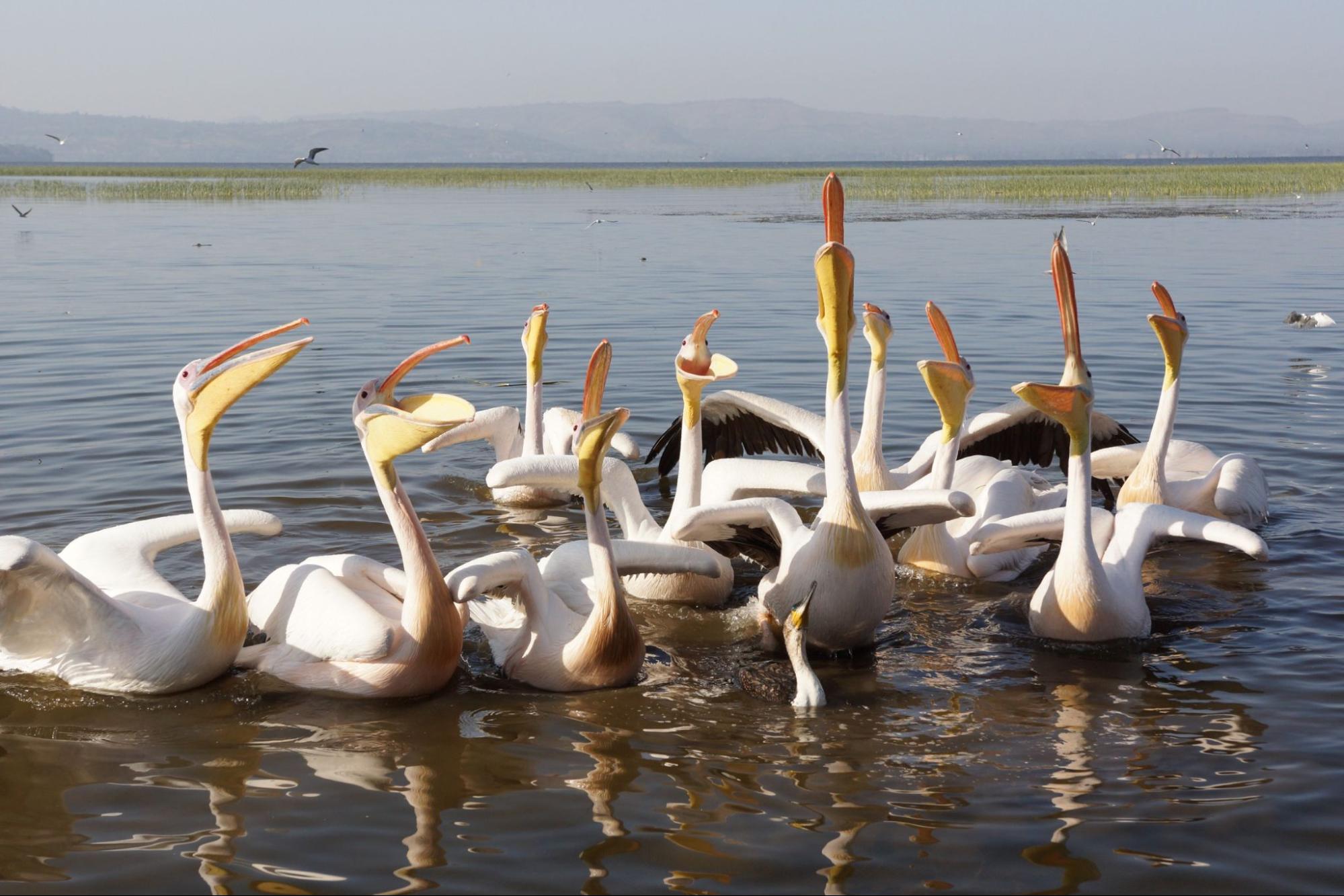
- Simien Mountains Wildlife Safari
A wildlife safari in the Simien Mountains National Park allows you to observe endemic and rare species such as the Ethiopian wolf, Walia ibex, and baboons in their natural habitat. Safaris can be organised with experienced guides to maximise wildlife sightings.
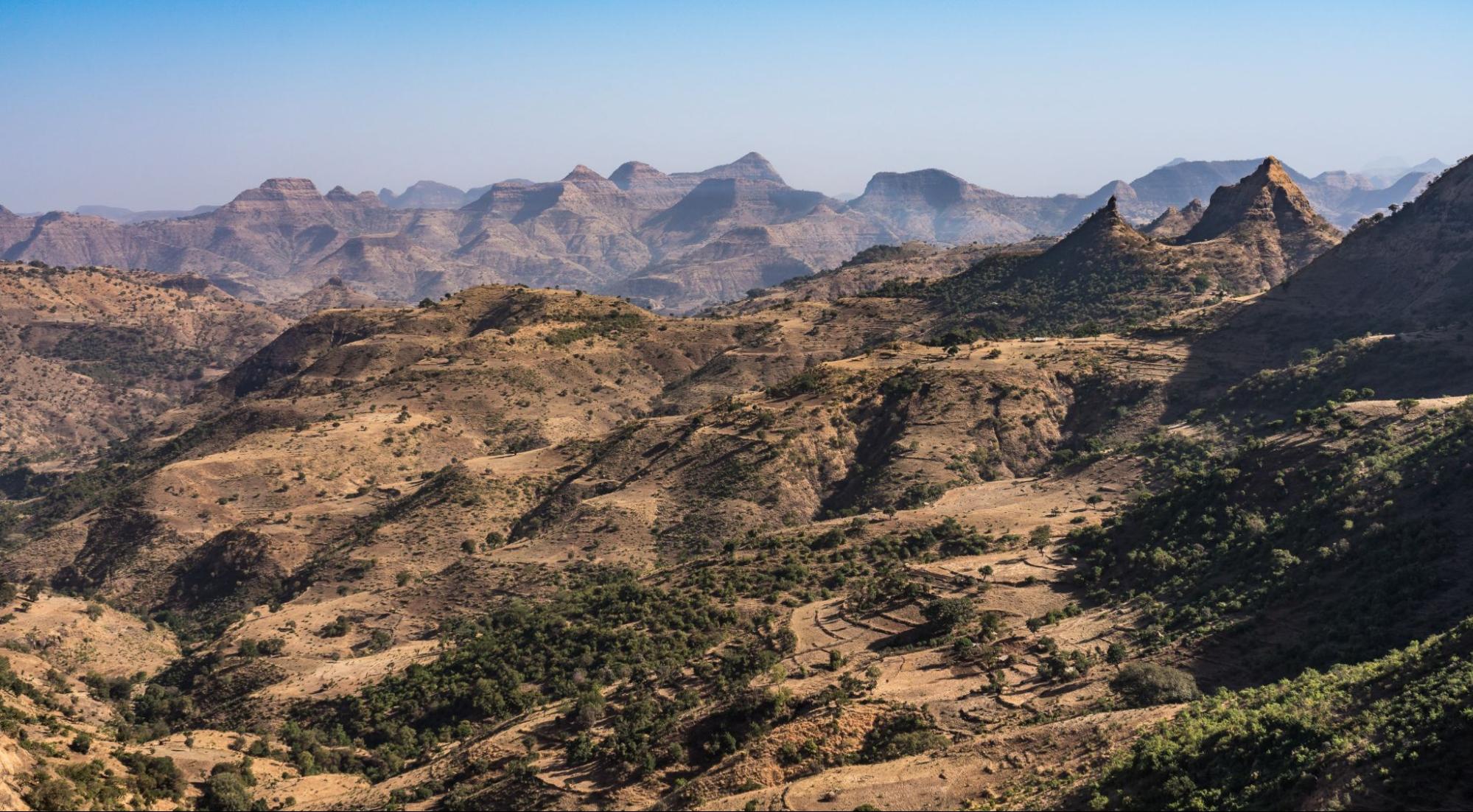
Essential Travel Tips and Practical Information
Travelling to Ethiopia can be a rewarding experience, but it's important to be well-prepared to ensure a smooth and enjoyable trip. Here are some essential travel tips and practical information for visiting Ethiopia:
- Visa and Entry Requirements
Check the visa requirements for your nationality before travelling to Ethiopia. Many travellers need a visa to enter the country, which can often be obtained upon arrival at the airport or online in advance.
- Vaccinations and Health Precautions
Consult with a healthcare professional before your trip to ensure you have the necessary vaccinations and medications for Ethiopia. Common recommendations include vaccinations for yellow fever, typhoid, hepatitis A and B, and routine vaccines. Malaria is present in many parts of Ethiopia, so antimalarial prophylaxis is usually advised.
- Travel Insurance
Consider purchasing comprehensive travel insurance that covers medical emergencies, trip cancellations, and travel delays. Check if your policy also covers activities like trekking and adventure sports if you plan to engage in them.
- Currency and Banking
The currency in Ethiopia is the Ethiopian Birr (ETB). Credit cards are not widely accepted outside major cities, so it's advisable to carry sufficient cash for your trip. ATMs are available in cities and larger towns for withdrawing cash.
- Language
Amharic is the official language, but English is widely spoken, especially in urban areas and the tourism industry.
- Local Customs and Dress Code
Ethiopia is a conservative country, and it's respectful to dress modestly, especially when visiting religious sites. Women are often expected to cover their shoulders and knees. It's also common to remove your shoes when entering someone's home.
- Safety and Security
Ethiopia is generally a safe country for travellers, but it's essential to stay informed about the current political and security situation. Be cautious when visiting border regions, and follow the advice of local authorities and your embassy or consulate.
- Transportation
Ethiopia has a range of transportation options, including domestic flights, buses, and minibosses. The road network can be challenging in some areas, so plan your routes and transportation in advance. Ethiopian Airlines is the national carrier and offers domestic flights to major cities.
FAQS
Is Ethiopia safe for tourists?
Ethiopia is generally considered safe for tourists. However, it's essential to stay informed about the current political and security situation, especially in border regions and remote areas. Follow local advice and check travel advisories before your trip.
Do I need a visa to visit Ethiopia?
Many travellers need a visa to enter Ethiopia. Check the visa requirements for your nationality before travelling. Visas are often available on arrival at the airport or can be obtained online in advance.
What vaccinations are required for Ethiopia?
Common recommended vaccinations for Ethiopia include yellow fever, typhoid, hepatitis A and B, and routine vaccines. Malaria is prevalent in many areas, so antimalarial prophylaxis is advisable. Consult a healthcare professional before your trip for personalised advice.
What's the best time to visit Ethiopia?
The best time to visit Ethiopia is during the dry season, which typically runs from October to May. The country has diverse climates, so the ideal time may vary depending on your destination and activities.
What are the must-visit destinations in Ethiopia?
Some of the must-visit destinations include Lalibela with its rock-hewn churches, the Simien Mountains for trekking, Bahir Dar for Lake Tana and the Blue Nile Falls, and the Omo Valley for cultural experiences with indigenous tribes.
Is English widely spoken in Ethiopia?
Yes, English is widely spoken in urban areas and within the tourism industry. However, knowing a few basic phrases in Amharic, the official language, can be helpful for communication.
What is Ethiopian cuisine like?
Ethiopian cuisine is known for its unique flavours and communal eating style. Injera, a sourdough flatbread, is a staple. Dishes often include lentils, vegetables, and various stews. Try local specialties like doro wat (spicy chicken stew) and kitfo (minced raw meat).
Applying for an Ethiopia eVisa
- Step 1: Complete the online application by providing your personal details and passport information.
- Step 2: Make an online payment securely using your credit card.
- Step 3: Check your email for the confirmation of payment and the receipt of your Ethiopia eVisa, which will be delivered electronically.
